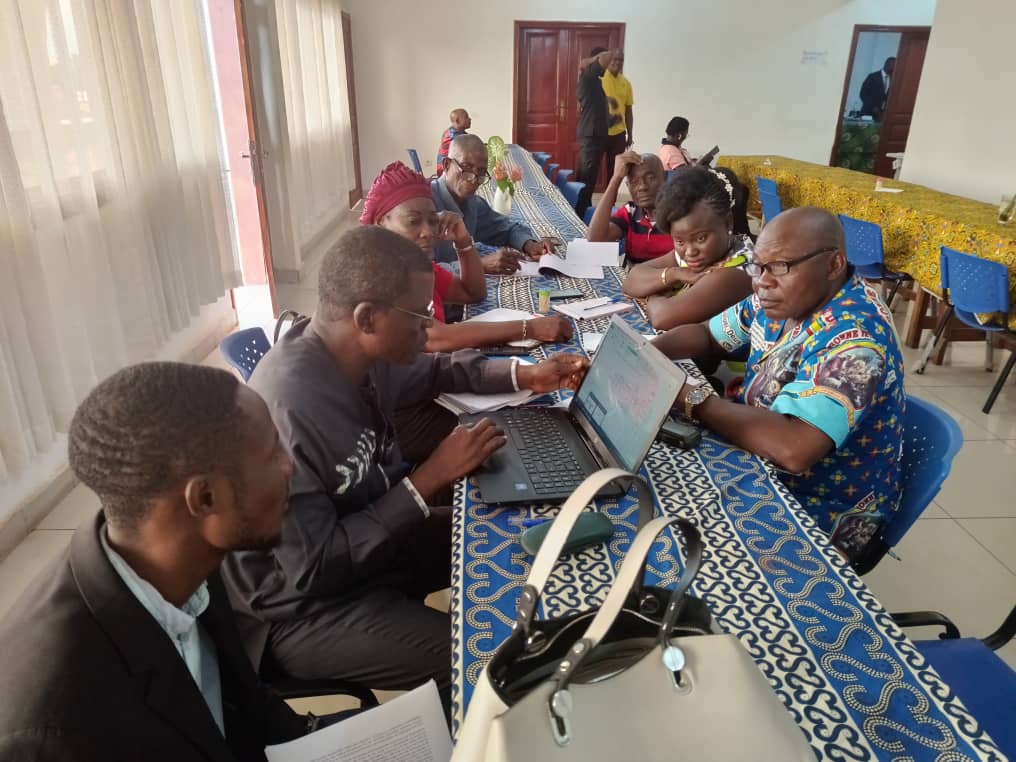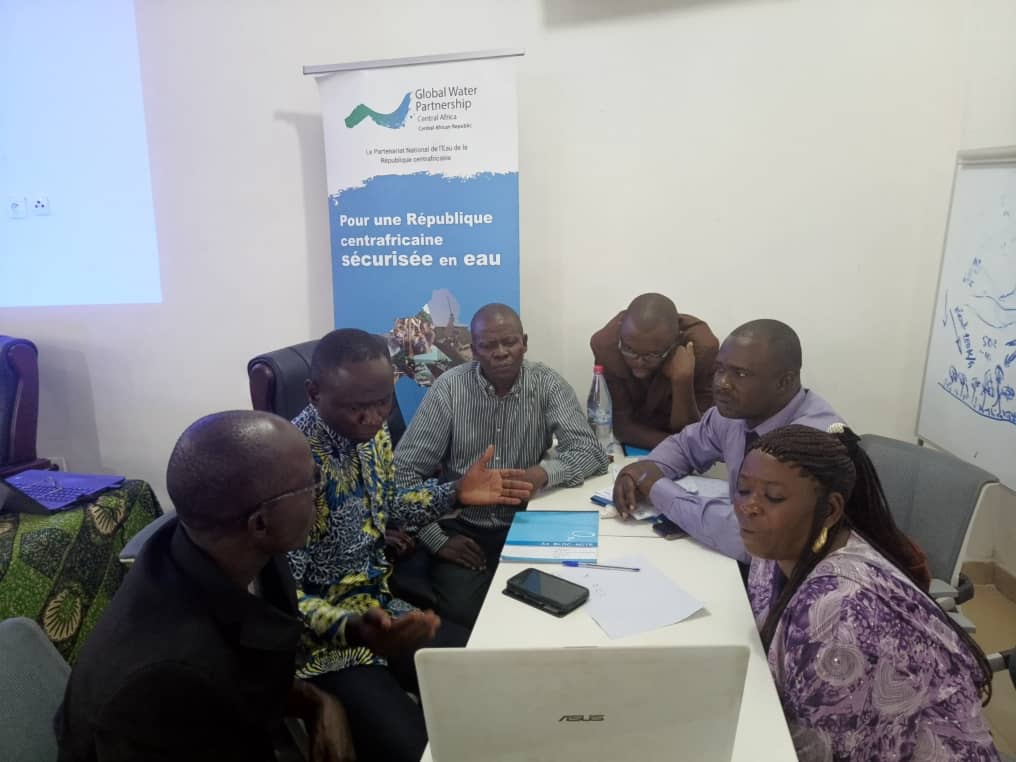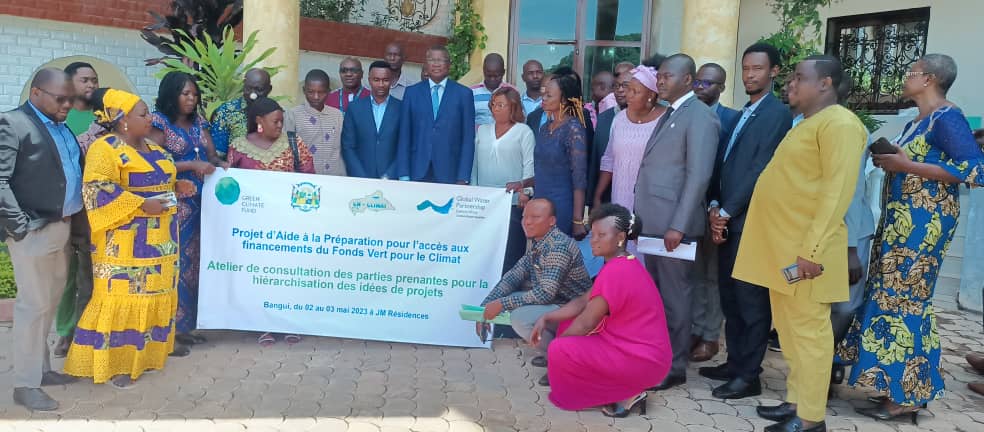The two-day workshop was organized by the GWP-Central African Republic in collaboration with the National Climate Coordination with the main objective of prioritizing and adopting two project ideas using a Multi-Criteria Analysis. The national consultation follows prior research work done by a consulting firm in charge of developing the concept notes. This research consisted of desk research on relevant project documentation at national and international levels and consultations with key national stakeholders to identify project ideas that could be developed into project ideas and concept notes. At the end of the research, seventeen project ideas were developed from national documents (National Adaptation Plan, NDCs and GCF Country Programme) and four project ideas were identified through stakeholder consultations. The purpose of the two-day meeting was therefore to present the twenty-one project ideas to the stakeholders so they could choose two through a rating process.

In the opening ceremony of the 50-person workshop, the GCF focal point, Boris Bemokolo, reiterated that the GCF through its country Readiness program is financing a support program for planning and readiness activities in the Central African Republic aimed at strengthening the technical capacity of the National Designated Authority (NDA) to improve access to available climate funding opportunities for climate-resilient projects in the country. He also highlighted that this Readiness project is in synergy with the third pillar of the Central African Recovery and Peacebuilding Plan (RCPCA). In a bid to paint a clear picture of the urgency to address gaps in the climate and water sectors, GWP-CAf’s Regional Chair, Sylvain Guebanda said, “CAR statistics in the water sector indicate that more than 35% of the population does not have access to drinking water! This challenge, in addition to climate change, undermines the government's efforts to improve the living conditions of the population”.
Kicking off the core work of the workshop, GWP-CAf’s Regional Coordinator, Djibrilla Mohamadou, gave a brief review of the GCF Readiness program objectives while highlighting the synergy between the program and GWP’s 2020-2025 Strategy. He also explained the prior process carried out by GWP and the NDA to identify barriers hindering the CAR from accessing climate finance. The GCF Program Coordinator, Bertrand-Blaise Nzanga, told participants that the country readiness program will help address these gaps to improve climate resilience in the country. He mentioned the three reports that have been produced so far within the framework of the national GCF program, with the most recent focused on mapping stakeholders involved in climate finance mobilization for capacity-building training sessions on the GCF procedures.

To better improve understanding and facilitate the project rating process, the consultant in charge of developing the concept notes presented the multi-criterion analysis method and used a step-by-step approach to explain each criterion to the participants. The six GCF investment framework criteria was the basis to develop the ten-point criteria used to rank the project ideas. These criteria were used:
- Job creation and employment opportunities
- Improved local economies
- Ability to increase water the supply
- Promotes the development of water resource infrastructure
- Promotes the development of skills and capacity in water resource management
- Capacity to increase the rational and sustainable use of water resources
- Capacity to promote gender equality
- Greenhouse gas reduction and climate change adaptation potential
- Potential to take account of local knowledge
- Positive impact on the environment and biodiversity
In the group discussions that followed the presentation of the project ideas, the participants suggested that some project ideas be merged since they tackle similar issues and others be presented as project components rather than independent projects. Based on these comments, it was agreed that certain project ideas should be reformulated, which led to the 21 project ideas being narrowed down to six for prioritization. At the end of the group work on the second day of the workshop, the ratings for the different project ideas were merged by the consultant, and the averages were calculated to identify the top two picks by the stakeholders. The two final, selected project ideas were:
- Improving Integrated Water Resources Management and Sanitation ;
- Management of rainwater harvesting in the Sudano-Sahelian and Sudanian zones in CAR
For next steps, the consulting firm, in collaboration with the program team, will integrate the comments made by the stakeholders and finalize the project ideas to take better account of certain initial project ideas that have been merged.
